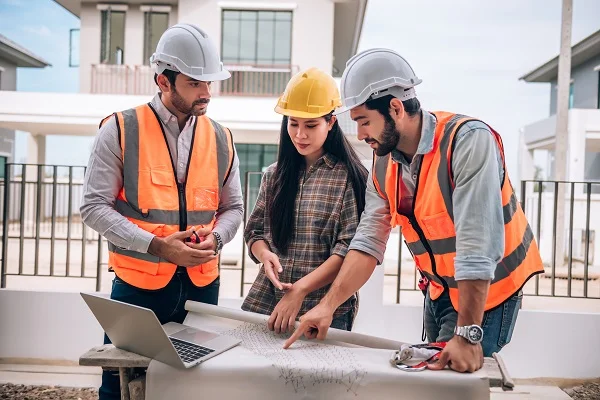Stichting Bouwresearch (SBR) is a renowned research organization in the Netherlands dedicated to advancing the construction industry. It plays a pivotal role in improving building practices, enhancing sustainability, and implementing innovative solutions. This article explores the significance of Stichting Bouwresearch, its contributions, and how it shapes the future of construction.
The History of Stichting Bouwresearch
Origins and Establishment
Stichting Bouwresearch was established to address challenges in the Dutch construction industry. The organization emerged as a response to the need for standardized research and development practices, ensuring that construction methods remain efficient and sustainable.
Evolution Over the Years
Over the decades, Stichting Bouwresearch has adapted to industry changes, integrating modern technology and sustainable materials into its research initiatives. Its contributions have influenced regulations, architectural designs, and energy-efficient building solutions.
Key Objectives of Stichting Bouwresearch
Enhancing Construction Quality
One of the primary goals of Stichting Bouwresearch is to improve the quality of construction projects. Through extensive research, the organization provides builders and developers with data-driven insights to enhance durability, efficiency, and cost-effectiveness.
Promoting Sustainability in Construction
Sustainability is a core focus of Stichting Bouwresearch. The organization advocates for eco-friendly materials, energy-efficient construction techniques, and sustainable urban development to reduce the environmental impact of the industry.
Implementing Technological Innovations
Stichting Bouwresearch actively explores the integration of smart technologies in construction, including automation, AI-driven project management, and innovative materials that improve efficiency and safety.
Research Areas Covered by Stichting Bouwresearch
Sustainable Building Materials
Research on sustainable materials is a significant part of Stichting Bouwresearch’s work. The organization explores eco-friendly alternatives such as recycled concrete, biodegradable insulation, and energy-efficient windows to promote green construction.
Energy-Efficient Construction Techniques
To meet global climate goals, Stichting Bouwre search investigates energy-efficient construction methods. These include passive house designs, solar panel integration, and smart energy management systems that optimize building performance.
Building Regulations and Safety Standards
Stichting Bouwresearch collaborates with regulatory bodies to establish and update building codes. Their research ensures that construction projects comply with the latest safety standards, minimizing risks associated with structural failures and environmental hazards.
The Impact of Stichting Bouwresearch on the Construction Industry
Advancements in Building Technology
Thanks to Stichting Bouwresearch, the Dutch construction industry has witnessed significant advancements in technology, from the use of prefabricated components to 3D printing in architecture.
Economic Growth and Job Creation
By fostering innovation, Stichting Bouwre search contributes to economic growth by creating new job opportunities and supporting businesses in the construction sector.
Contribution to Sustainable Urban Planning
The organization’s research influences urban planning policies, ensuring that cities are designed with sustainability, energy efficiency, and environmental protection in mind.
Collaboration and Partnerships
Government and Policy Makers
Stichting Bouwre search works closely with the Dutch government to develop policies that support innovation and sustainability in the construction sector.
Academic Institutions and Researchers
The organization partners with universities and research institutions to conduct in-depth studies on emerging construction trends and challenges.
Industry Stakeholders
Construction companies, architects, and engineers collaborate with Stichting Bouwre search to implement research findings into real-world projects, enhancing industry practices.
Future Prospects of Stichting Bouwresearch
Advancing Digitalization in Construction
With the rise of digital technologies, Stichting Bouwre search is expected to lead the integration of Building Information Modeling (BIM), IoT-based smart buildings, and AI-driven project management tools.
Expansion of Sustainable Construction Initiatives
The organization will likely focus on advancing circular economy principles in construction, ensuring that materials are reused, repurposed, and recycled efficiently.
Strengthening Global Collaborations
Stichting Bouwresearch aims to collaborate with international organizations to exchange knowledge, research findings, and innovative construction methodologies.
Conclusion
Stichting Bouwresearch plays a crucial role in shaping the future of the Dutch construction industry. Through research, technological advancements, and sustainable initiatives, it continues to set new benchmarks for quality and efficiency. As the industry evolves, Stichting Bouwresearch remains a driving force in ensuring that construction practices align with environmental goals and modern technological innovations.
Frequently Asked Questions
What is the purpose of this organization?
The organization focuses on researching and developing sustainable, efficient, and high-quality construction methods to improve the industry.
How does it help in sustainable construction?
It conducts research on eco-friendly materials, energy-efficient building techniques, and policies that promote environmental responsibility in construction.
Who can benefit from its research?
Construction companies, architects, policymakers, engineers, urban planners, and researchers benefit from the findings and innovations shared by the organization.
Does it collaborate with government bodies?
Yes, it works closely with policymakers to establish building regulations, safety standards, and sustainability guidelines.
What future developments can we expect?
Future initiatives include the integration of digital construction technologies, expansion of circular economy principles, and stronger global collaborations to enhance industry practices.









